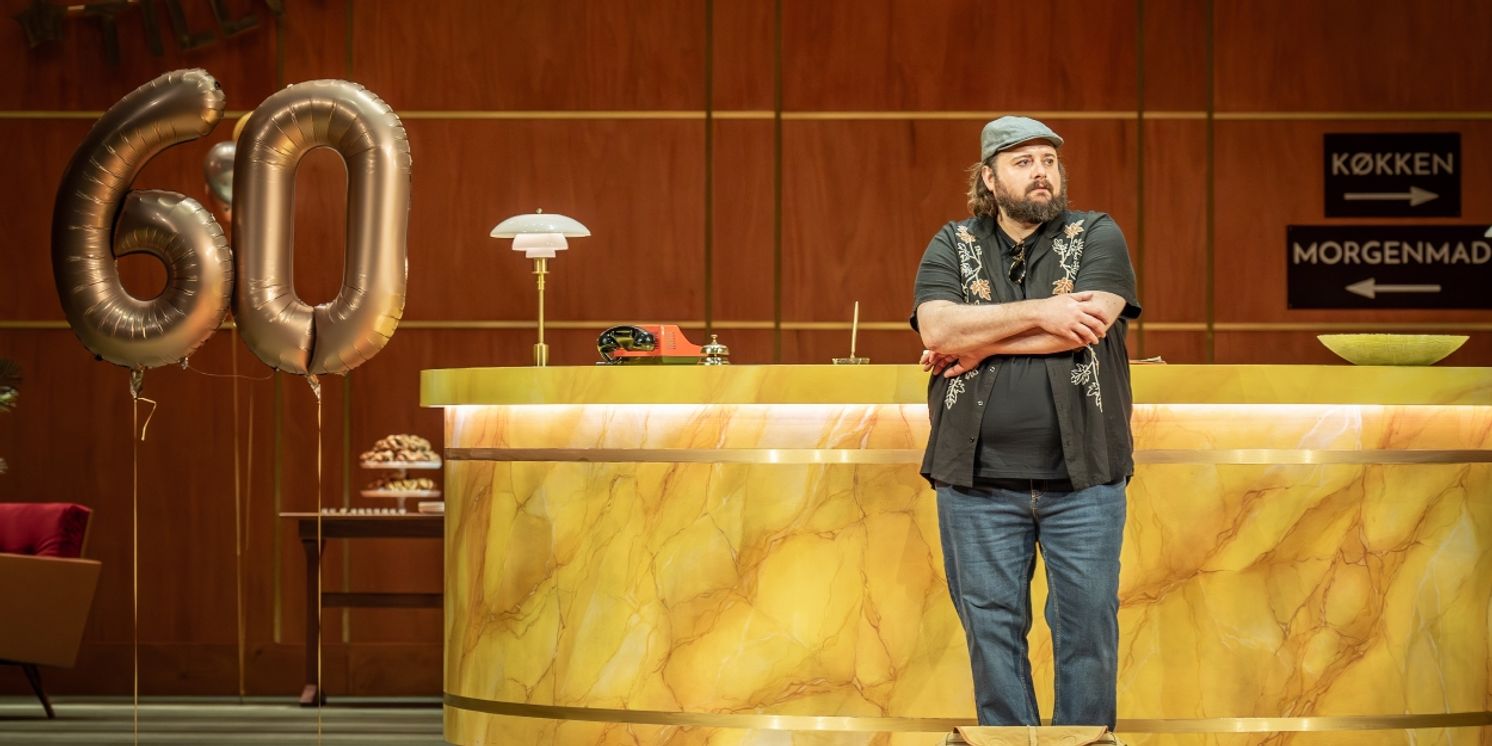Review: FESTEN, Royal Ballet And Opera
Mark-Anthony Turnage's new opera runs until 27 February

![]() One of the doctrines that governs Thomas Vinterberg’s Dogme 95 filmic ideology is that all sound, especially music, must be diegetic. So an opera version of his first Dogme 95 Festen should be a contradiction in terms? From an Oedipus in East London to a Playboy bunny, composer Mark-Anthony Turnage has a provocative habit of turning unconventional narratives into opera.
One of the doctrines that governs Thomas Vinterberg’s Dogme 95 filmic ideology is that all sound, especially music, must be diegetic. So an opera version of his first Dogme 95 Festen should be a contradiction in terms? From an Oedipus in East London to a Playboy bunny, composer Mark-Anthony Turnage has a provocative habit of turning unconventional narratives into opera.
A bourgeois Danish family gather for patriarch Helge’s 60th birthday celebration only for dark revelations to unravel from the shadows. Eldest son Christian accuses his father of sexual abuse in the wake of his twin sister Linda’s suicide. But the shockwaves aren’t seismic enough to crumble the family’s foundations. How far will Helge salvage his reputation?
Vinterberg’s film demolishes you with in-yer-face slapdash charm, courtesy of the Dogme manifesto – another “vow” to only use handheld cameras. How to translate that effect onto the stage? Mark-Anthony Turnage’s answer is to pen an adaption (alongside librettist Lee Hall) that feels more like a film score than an opera. This is not a bad thing – the production brims with atonal unpredictability, jittery bristling and bubbles with Bernard Herman like flourishes, an invocation of Hitchcockian flavoured psychodrama.
Allan Clayton’s trauma-heavy Christian, hunched like a clenched fist ready to strike, echoes his critically lauded characterisation of Peter Grimes. Helge’s unctuous narcissism bleeds through with a potent performance from Gerald Finley. Turnage indigently gives melancholic voice to the ghost of Linda, shifting the film’s epicentre away from abuser towards the victims. Miriam Buether’s set also marks a departure from the source material, with this version’s hotel a 1970s purgatory, layered in retro chic wood panelling, geometric surfaces, and sepia tones.
%2C%20Ste%CC%81phane%20Degout%20(Michael)%20in%20Festen%2C%20The%20Royal%20Opera%20%C2%A92025%20Marc%20Brenner.jpg?format=auto&width=1400)
The film works by coaxing out extremities and burrowing itself in between the contrasts of absurd humour and heavy darkness. The opera works in similar ways, juxtaposing a raucous conga line with Christian’s vision of a dead twin, more wretched accusations with the bumbling toastmaster’s seethingly awkward attempts to keep the increasingly Buñuel -like party alive. Funny, yes, but not enough to offset the omnipresent darkness. We are tantalised with a glimpse at a dramatic explosion, but it never quite detonates, even with Edward Gardner diligently reeling up the tension at the conductor’s podium.
Instead the slow burn hints at what the this iteration of Festen is really about. Post #MeToo questions about accusations, abuse, and accountability still shudder through institutions. Helge’s wife, a hurricane force Rosie Aldridge, silently becomes her own conundrum. Revealed to have been aware of her husband’s grim perversions, her silence is more than complicity but enablement. Festen isn’t so much a call to arms, but a grim reminder of horror that can linger beneath even the most ornate surface.
Festen plays at Royal Ballet and Opera until 27 February
Photo Credits: Marc Brenner
Reader Reviews
Videos

